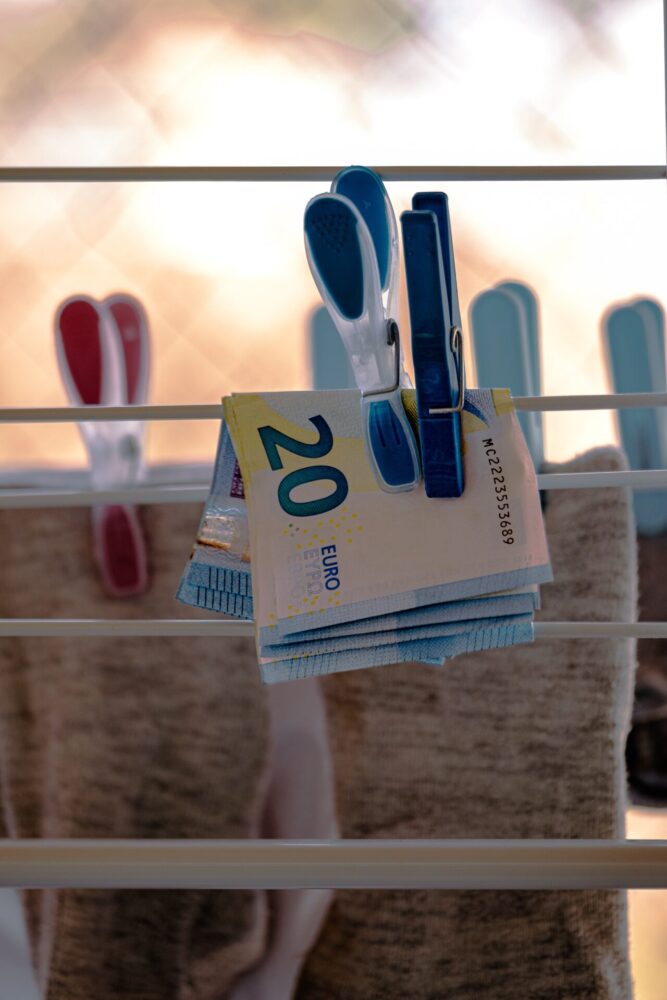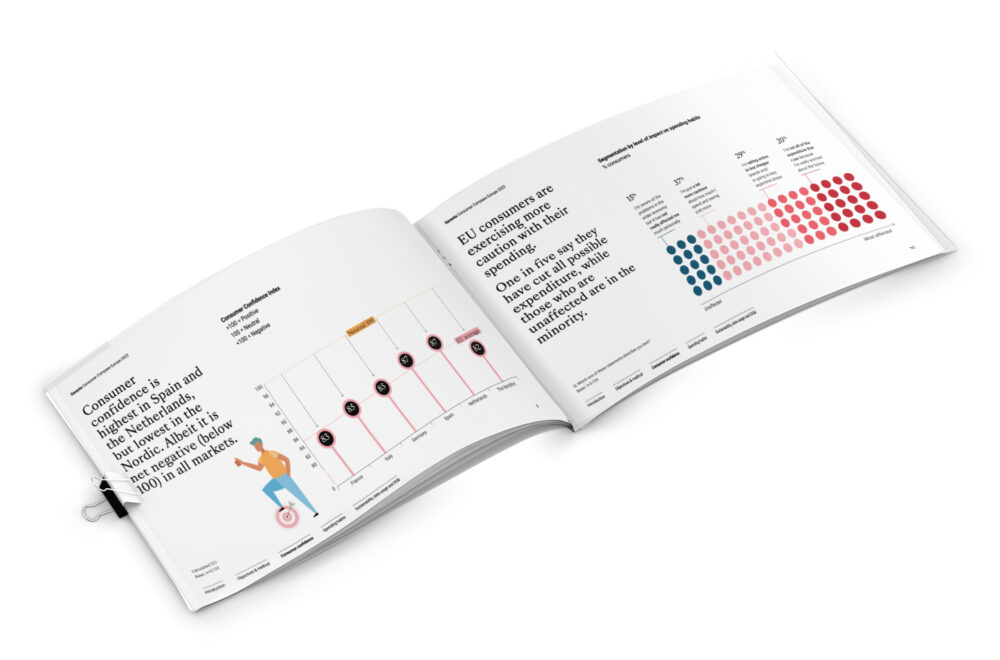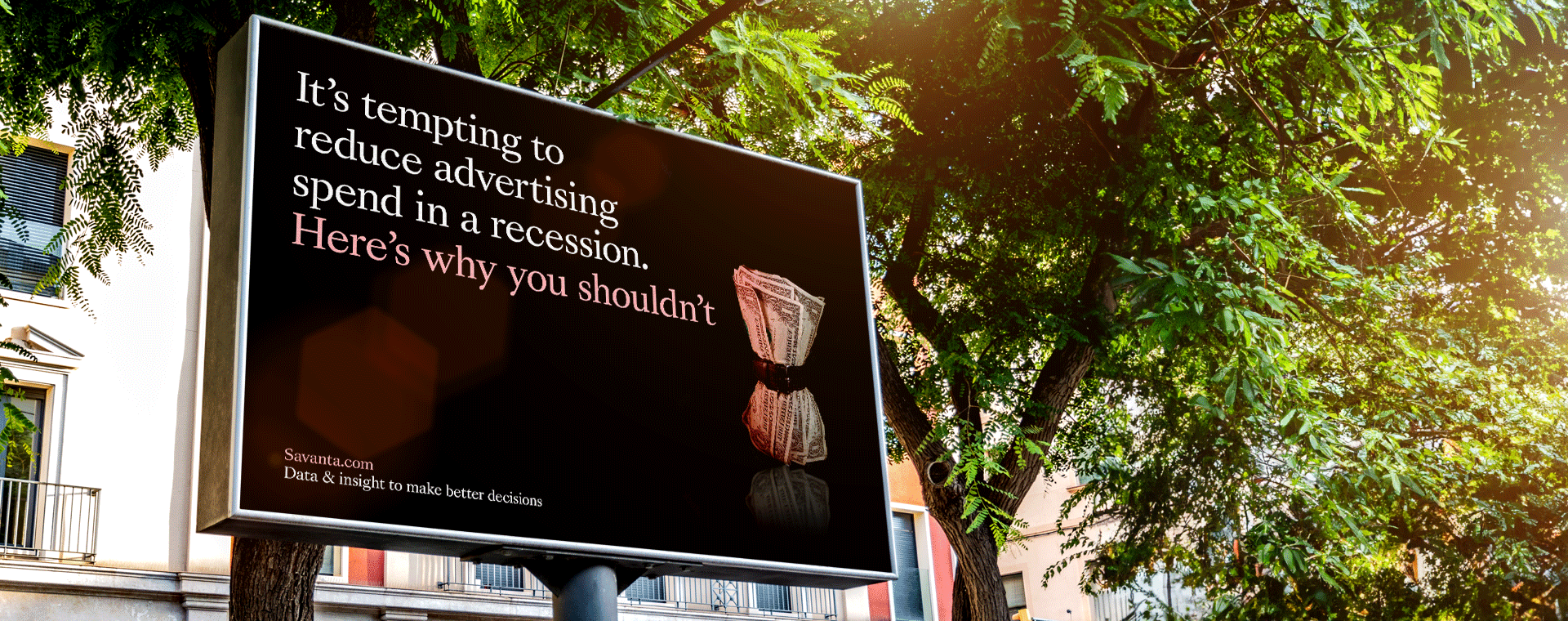
According to recent data, European consumers are feeling relatively confident about their financial prospects, despite economic uncertainty.
Consumers in countries like Spain and the Netherlands are reporting the highest confidence scores, at 87.
Italy and Germany follow closely behind, both scoring 85, while France and the Nordics lag slightly behind at 83 and 82, respectively.
- France: 83
- Italy: 85
- Germany: 85
- Spain: 87
- Netherlands: 87
- The Nordics: 82
When looking at confidence by demographics, younger generations appear to be more optimistic about the future than older age groups, with 18–24-year-olds scoring the highest at 106. Conversely, 55-64 year-olds had the lowest score at 75. Women also express slightly lower confidence levels, with a score of 80 compared to men’s 89.
Tightening Belts: which countries expect to see a dip in disposable income?
One area of concern for many European consumers is disposable income. Across all nations, 27% of respondents expect to have less disposable income in the next six months, while 33% expect to have more, and 40% expect it to stay the same.
Germany and Italy appear to be the worst affected by this issue, with a third of their consumers saying they will have less disposable income. In contrast, Spanish consumers report the lowest impact, with only 18% expecting to have less disposable income, which coincides with their high confidence score.
Europeans confident in economy despite income concerns
Despite some concerns about disposable income, European consumers express a relatively high level of confidence in the overall economic situation. For instance, Germany and Spain both report feeling the most confident, with 25% expressing confidence about the overall economic situation.
Meanwhile, the Netherlands reports the lowest level of confidence at 20%. However, when asked about their personal financial situation, the Netherlands and Spain tie for first place with 30%.
The Generational Divide: younger Europeans more confident about their finances
18–24-year-olds felt more confident in the current economic situation than they did a couple of months ago, with Germany’s young generation being the most confident at 47%. This translates to confidence in personal savings, with Germany’s young group the highest again at 68%. Converse to what we see across other nations, younger generations appear to be the least confident in Italy at 17%.
At an average level, older generations had less faith that the government is doing a good job in handling the economy. Although, in this case, Italy is the outlier; with 33% of those aged 65+ having faith in the job the government are doing – higher than any other age group.
How spending habits vary across Europe
When it comes to spending habits, the data reveals some interesting trends. The Netherlands appears to be more insulated from the effects of the pandemic, with spending on non-essentials like gym memberships, eating out, holidays, DIY, in-home entertainment, and personal grooming and beauty less impacted. A prime example is beverage consumption. While 50% of all respondents say they are spending less on alcohol, 7% of the Netherlands are spending more on alcohol now – more than any other nation.
German consumers also report being less impacted in these areas, with only 36% of German respondents saying they were spending less – the lowest of all nations. Italy, Spain, and France, on the other hand, have been hit harder in various non-essential spending markets. For example, spending less on holidays – with France being the lowest of all nations, with 59% of respondents saying they are spending less. In contrast, Germany had the highest number of respondents saying they are spending more on holidays – at 15%.
Notably, consumers across all nations report spending less money on daily travel and commuting (42%), however, this may be due to the work-from-home trend that emerged during the pandemic.
European job market outlook: cautious optimism
Looking ahead, nearly half of respondents (48%) predict that their job situation will be the same in six months, with 16% expecting their situation to be better or worse. Here, the Spaniards are most optimistic, reporting the highest proportion who believe their job situation will be better in six months at 19%.
In conclusion, while recent world events undoubtedly impacted the European economy, the data suggests that European consumers are still expressing a relatively high level of confidence in their economic prospects. Although some concerns remain, particularly around disposable income, spending habits, and job security, the overall outlook remains positive.
Download the latest full European Consumer Compass report to understand how consumers are thinking today and how they will behave tomorrow.






